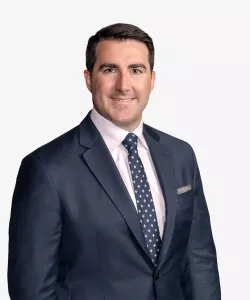Friday Enforcement Wrap: Government Shutdown Watch
Headlines that Matter for Companies and Executives in Regulated Industries
Government Shutdown Watch
As the partial government shutdown continues—the longest in history—the Administrative Office of the US Courts announced on Wednesday that it estimates that federal courts can sustain funded operations through January 25, 2019. The AO had previously estimated that funding would be exhausted by January 18, after which federal courts would need to rely on unpaid staff to perform critical functions. During the shutdown, the United States Judiciary has continued to operate using court fees and other spare funds.
See here for the Judiciary’s announcement.
Despite the continued operations of the federal courts, many Executive Branch attorneys remain furloughed. Courts in some federal districts have therefore entered general orders that stay certain cases in which the government is a party (see, e.g., here for an order in the S.D.N.Y.), and, in other districts, the government has moved for stays in certain cases until after the enactment of appropriations measures.
Meanwhile, judges on the DC Circuit have disagreed as to whether that court should grant stays to government attorneys in cases absent an emergency involving human safety or the protection of property, under the Anti-Deficiency Act, 13 US C. § 1342. See Kornitzky Grp. LLC v. Elwell, 2019 WL 138710, – F.3d – (D.C. Cir. Jan. 9, 2019) (majority and dissenting opinions).
In other news, FDA Commissioner Scott Gottlieb announced via Twitter on Tuesday that roughly 400 furloughed FDA staff have been called back to work, including about 150 who focus on food inspection, and roughly 260 who focus on inspections of manufacturing facilities for high-risk medical devices, drugs, and biologics.
DOJ News
DOJ and SEC Charge Ukrainian Nationals with Hacking SEC and Trading on Stolen Non-Public Information
On January 15, the US Attorney’s Office for the District of New Jersey announced that it had charged two Ukrainian nationals for their alleged roles in a large-scale international conspiracy to hack into the SEC’s Electronic Data Gathering, Analysis, and Retrieval (EDGAR) system and steal thousands of files.
The files allegedly included confidential, non-public information that public companies were required to disclose to the SEC, including annual and quarterly earnings reports that had not yet been publicly released by the companies, and that were used to execute trades ahead of earnings announcements. In a 16-count indictment, DOJ charged the defendants with securities fraud conspiracy, wire fraud conspiracy, computer fraud conspiracy, wire fraud, and computer fraud.
The same day, the SEC announced charges in a parallel civil suit against nine defendants for allegedly participating in the same scheme. The SEC alleged that the conspiracy led to illegal trades before at least 157 earnings releases from May to October 2016, generating at least $4.1 million in illegal profits. The SEC’s complaint charges the defendants with violating federal securities antifraud laws and related rules, and seeks a final judgment ordering the defendants to pay penalties and return their ill-gotten gains, and enjoining them from committing future violations of the antifraud laws.
See here for the DOJ press release.
See here for the SEC press release.
AG Nominee William Barr to “Diligently Enforce” FCA if Confirmed
Attorney General nominee William Barr faced questions from Senator Grassley about his views on the False Claims Act, a statute about which Barr has been critical in the past, during the first day of his confirmation hearings. In 1989, while at the Office of Legal Counsel, Barr authored a memorandum asserting that the qui tam provisions of the False Claims Act, which allow private “relators” to bring suit on behalf of the federal government, were unconstitutional in that they violated the Appointments Clause, violated the doctrine of Article III standing, and violated separation-of-powers principles. During the hearing, Barr asserted that the FCA’s qui tam provisions were constitutional and that, if confirmed, he would “diligently enforce” the FCA.
DOJ Criminal Prosecutions of Individuals Increased in 2018
The DOJ Criminal Division recently published its “Fraud Section Year in Review” report, highlighting enforcement statistics from the past year. According to the report, DOJ saw an uptick in prosecutions against individuals.
Specifically, the report indicates that DOJ leveled fraud-related charges against 406 individuals in 2018 (compared to 301 in 2017), 230 individuals pleaded guilty (compared to 207 in 2017), and 38 individuals were convicted at trial (compared to 27 in 2017). The increase is consistent with DOJ’s renewed focus on pursuing individuals, detailed in DOJ’s 2015 memo on “Individual Accountability for Corporate Wrongdoing,” sometimes called the “Yates Memo.” Meanwhile, the number of corporate criminal enforcement actions remained the same year-over-year, at 10; and corporate criminal fines, penalties, forfeitures, and restitution decreased to roughly $1 billion in 2018, compared to $4.6 billion in 2017.
See here for a copy of DOJ’s report.
Litigation News
First Circuit Reinstates FCA Retaliation Claim; Holds that AKS Violations Are Always Material Under FCA
On January 15, the First Circuit reinstated a plaintiff-relator’s FCA retaliation claim after holding that a plaintiff-relator does not need to connect an alleged Anti-Kickback Statute violation with a false claim to survive a motion to dismiss on his retaliation claim. See Guilfoile v. Shields, 2019 WL 191998, – F.3d – (1st Cir. Jan. 15, 2019). Noting that the standard for pleading an FCA violation, which must satisfy Rule 9(b), differs from the standard for pleading an FCA retaliation claim, the court reasoned that plaintiffs “need only plead that their actions in reporting or raising concerns about their employer’s conduct reasonably could lead to an FCA action.” In other words, the court explained, “rather than plausibly pleading the existence of a fire – the actual submission of a false claim – a plaintiff alleging FCA retaliation need only plausibly plead a reasonable amount of smoke – conduct that could reasonably lead to an FCA action based on the submission of a false claim.”
The court also held that the plaintiff-relator did not need to plead materiality in his complaint because AKS violations are inherently material to government payment decisions. In reaching this decision, the court relied largely on the ACA’s 2010 amendment to the AKS, which now states that “a claim that includes items or services resulting from a violation of [the AKS] constitutes a false or fraudulent claim for purposes of [the FCA].”
Analysis You Can Use: The Latest from Our Client Alerts
The Investigations Blog recently covered two January 7 Supreme Court denials in closely watched cases regarding the False Claims Act’s materiality standard, United States ex rel. Harman v. Trinity Industries, Inc., 872 F.3d 645 (5th Cir. 2017), and United States ex rel. Campie v. Gilead Sciences, Inc., 862 F.3d 890 (9th Cir. 2017). Both cases analyzed the materiality standard in the wake of the Supreme Court’s landmark decision in Universal Health Services v. United States ex rel. Escobar, 136 S Ct. 1989 (2016).
In Harman, the Court’s denial left intact the Fifth Circuit’s reversal of a $660 million jury verdict. The panel had ruled that the plaintiff-relator failed to prove that the defendant’s alleged misrepresentations—regarding the safety and compliance of highway guardrail systems sold to states and reimbursed by the federal government—were material to government payment decisions.
In Campie, the Court’s denial left intact a government-friendly Ninth Circuit opinion that overturned a district court dismissal at the pleadings stage for lack of materiality, after the panel found that materiality remained a disputed factual issue in the case. The Court’s denial of the defendant’s request for review may have been due in part to the Solicitor General’s unusual offer in its amicus brief to move to dismiss the whistleblower’s claims against the defendant upon remand to the district court.
Contacts
- Related Industries
- Related Practices
-
Read Time
12Minutes





